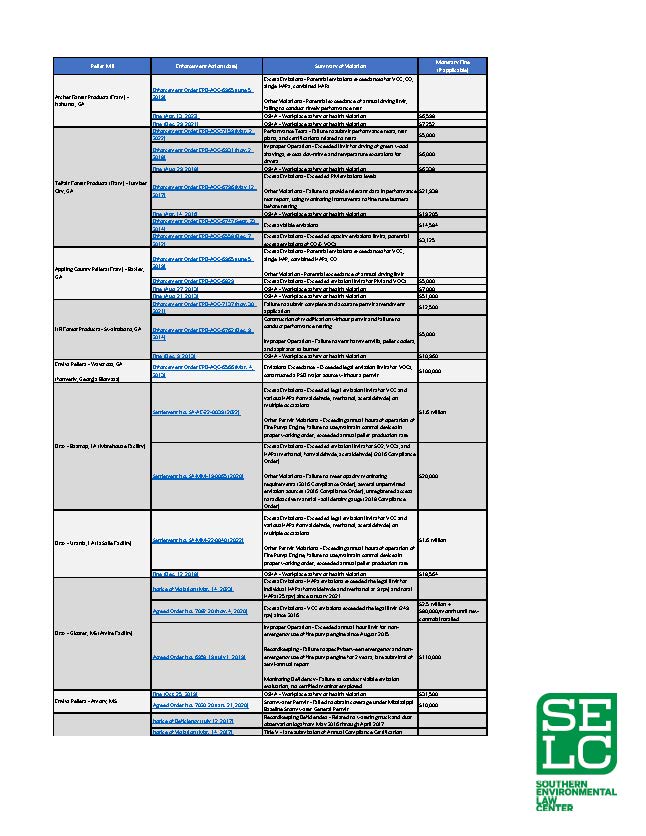Violations at wood pellet plants harm Southern communities

Pellet Mill Violations in the South
Biomass energy involves the large-scale burning of trees for power. A key part of the industry is turning trees into wood pellets, a dangerous and harmful process that has long-lasting impacts on nearby communities and the people who live there. As the biomass industry has grown in recent years, these dirty pellet facilities have proliferated throughout the South.
Pellet plants release harmful pollution, like nitrogen oxide, along with fine particles that can cause respiratory infections and asthma in nearby communities. Often times, these hazardous pellet plants are sited near communities of color that are already overburdened with industrial pollution. These facilities continue a long legacy of environmental injustice in the South.
Because of these harmful impacts, these pellet plants are regulated by state agencies. But wood pellet corporations often violate their permits, putting nearby residents at risk. Data from the Environmental Integrity Project shows that, in 2017, one in three wood pellet plants violated permitted limits. Even at regulated pollution levels, emissions from pellet plants can be harmful to nearby communities, so violations are particularly dangerous.
This chart outlines the known violations at wood pellet plants across the South.
